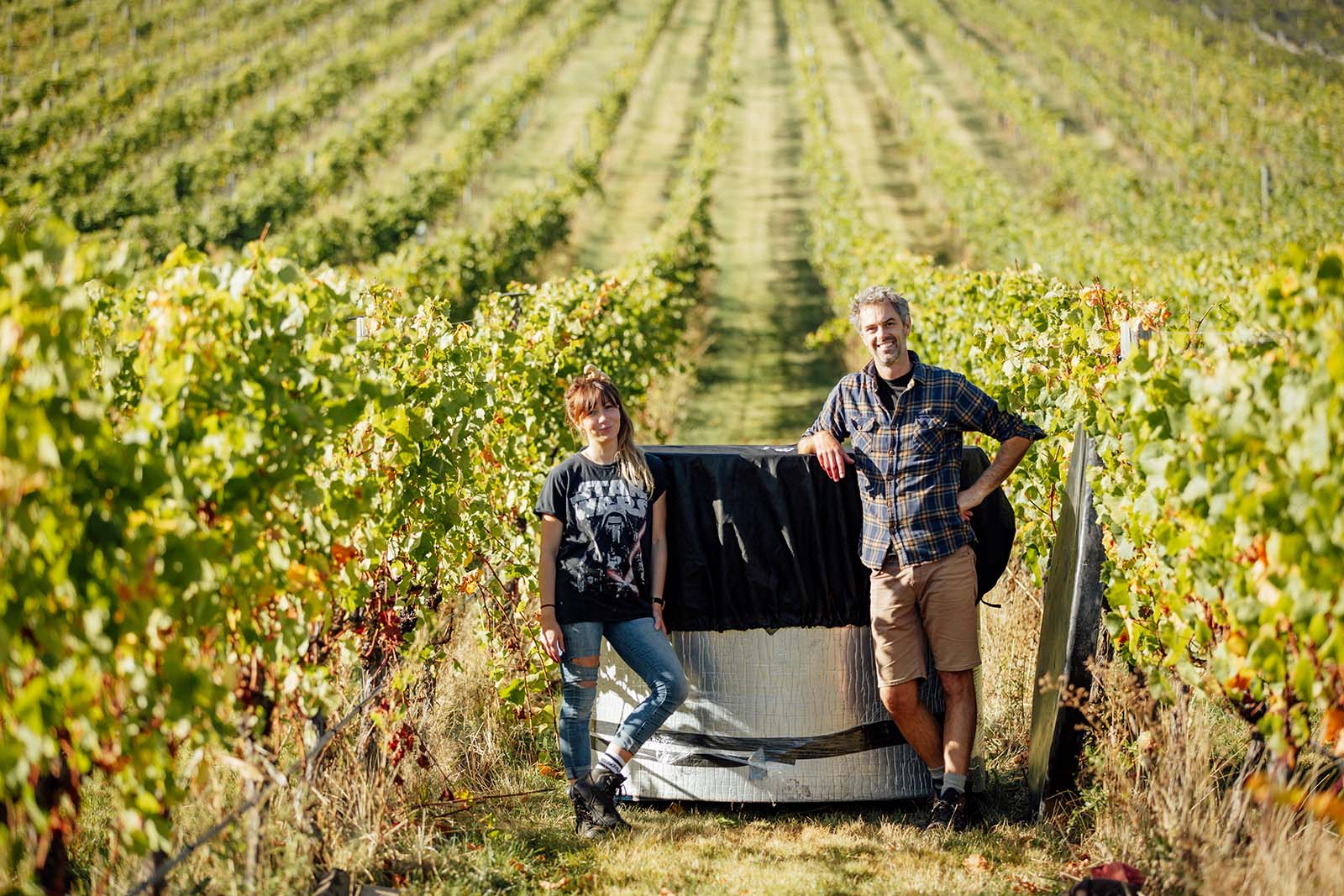Science unlocking Greystone’s secret ingredients
One of the world’s oldest forms of winemaking is going high tech, thanks to a Callaghan Innovation fellowship grant through Lincoln University.
The grant allows student Constanza Espinoza Iversen to study Greystone’s open-air winemaking, a totally organic, natural process.
Waipara Valley’s Greystone vineyard is unique in using the open air method, which involves putting picked fruit in an open fermenter among the vines. With no permanent lid, the fruit is exposed to the environment’s natural and wild native yeasts, where it is turned into wine.
“This is a world first. It is really a process of the old world. We’ve stripped it right back, to create a process that captures our place, right here in North Canterbury,” says Greystone winemaker, Dom Maxwell.
When Lincoln University PhD student Constanza first started her project, the concept was completely new to her too, despite having worked on harvests around the world.
“I had never seen this process before arriving at Greystone. So it was difficult to understand what the project was about – I mean, a ferment in the middle of the vineyard?!” says Constanza.
Constanza says her three-year PhD, funded through the Callaghan Innovation fellowship grant, has opened her eyes to how this process is very much “reflective of time and place”.
The 2021 harvest is Constanza’s last chance at undertaking field work to identify the yeast strains present in the vineyard ferment. She will spend the next four weeks collecting data, before resuming lab work to conduct yeast and chemical analysis.
Callaghan Innovation Agrifood Business Innovation Advisor – Agrifood, Paul Hamilton, says he is looking forward to seeing the results and insights from this student project.
“It will help them understand the regional characteristics of their wines and optimise their winemaking.”
While the winemaking method started as a “weird back corner” project for Greystone, it is now being raised in glasses across Europe.
“It is taking longer to pick up in NZ but Europeans are loving it,” says Dom.
Exports of the 2021 Vineyard Ferment are already locked in, with new clients coming from Scandinavian countries.
“It’s a process that is helping to grow New Zealand’s wine industry overseas and put us on the map,” says Dom.
“New Zealand has a large and thriving industry, which is based around delivering good quality, fruit-driven wine, generally Sauvignon Blanc. But what we’re realising is that as an industry other countries are competing in that space so we need to keep diversifying and adding value.
“So a project like this has attracted attention from some heavy-hitters around the world. It helps to give New Zealand a quality and innovative focus, and shows that we aren’t just about one style of wine. It adds value to all of New Zealand wine,” says Dom.
Constanza’s PhD means that the likes of Dom and his team will be able to explain the wine in-depth – right down to its microbiome – to customers and buyers the world over.
“It will help explain what is going on – and when people are spending more than $20 on a bottle of wine, they want to know what they’re drinking, who made it and what the season was like,” says Dom.
In 2020, Greystone Wine’s 2017 Vineyard Ferment Pinot Noir was named among the Top 100 Wine Discoveries by world-leading wine authority, Robert Parker. It was one of only two New Zealand wines to have made the list.
This year’s vineyard ferment will be bottled in August 2022.
